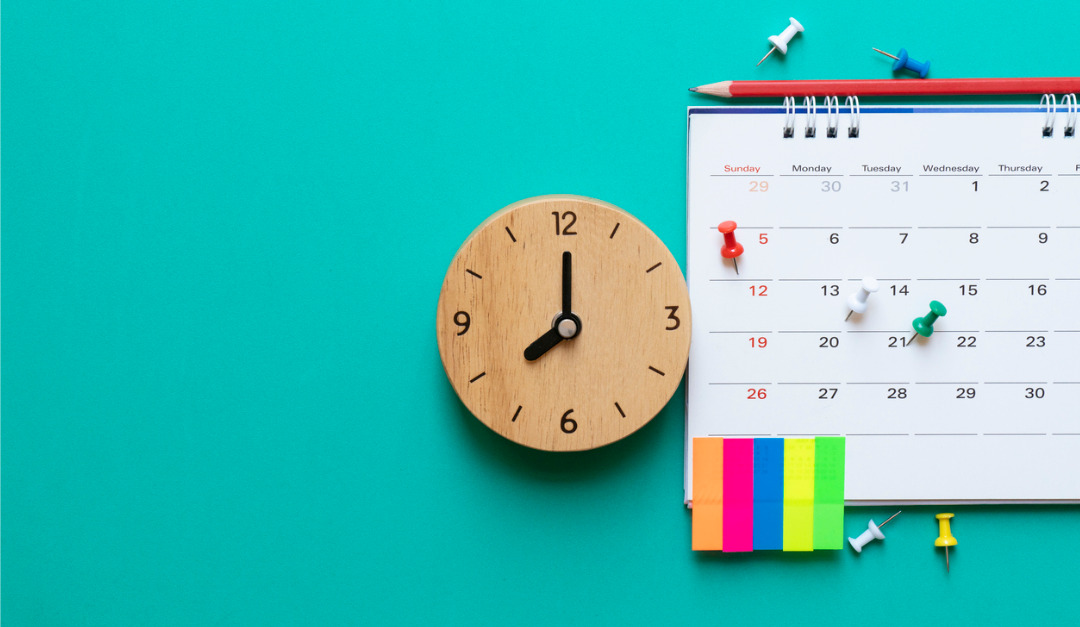If you feel overwhelmed by the never-ending tasks and demands in a given day, you’re not alone. Modern life seems busier than ever, and finding enough time to accomplish everything on your to-do list—let alone grab a free moment or two to relax—often feels like an impossibility.
But it’s not.
Research shows that Americans are, in fact, no busier than they used to be, even though it feels like we are. The conflict may lie in our strategies for using time more efficiently. According to real estate coach Sara Guldi with Workman Success Systems, the concept of time management is a fallacy because no one can truly manage time—but we can, however, choose how we spend it.
Guldi offers the following tips for utilizing our time more wisely to work our way out from under the nagging burden of feeling overwhelmed and under-accomplished.
Track your time. Guldi says the first step is to build an accurate picture of how you’re currently spending your time. She suggests writing down what you do every 30 minutes for two weeks, then step back and evaluate your habits and patterns. Did you need to do all the things you did? Were certain activities really the best use of your time? What were your most time-consuming tasks, and how could you make those easier? Also look at the times of the day that were most productive for you—perhaps it was first thing in the morning or after dinner in the evenings. Conducting this analysis of how you’re currently using time will allow you to make some necessary changes.
Do the important things first. For most people, taking care of your most important tasks first thing in the morning is essential to avoiding that overwhelmed feeling. Guldi suggests planning your week in advance and making sure your high-priority to-dos are scheduled for early in the day. This way, you can help ensure that distractions and busy-work don’t get in the way of the really important things that need to get done.
Say ‘no’ to procrastination. We all fall victim to procrastination, so it takes constant vigilance to avoid the urge to put something off. Guldi says one way to do this is to eliminate “external time-wasters” by scheduling time to check emails, return voicemails or engage on social media. She also recommends sticking to the “OHIO” rule when it comes to emails—Only Handle It Once—and to let go of the myth of multitasking. You’ll get more done, more efficiently, if you focus on one task at a time.
Schedule time for well-being. Our never-ending business often means we sacrifice what should be our top priority: taking care of you. As Guldi says, being well-rested and well-centered will improve your life on the job and at home, so be sure to schedule time to tend to your physical and emotional health.











